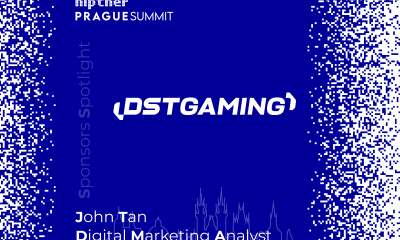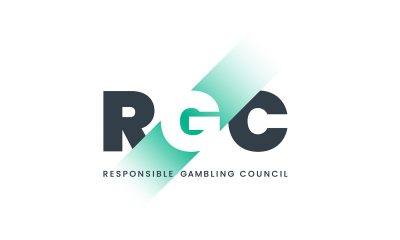Latest News
HIPTHER Community Voices: AI in iGaming: A Guide to Adoption, Benefits, and Challenges

iGaming is undeniably growing, yet even here, AI adoption for streamlining operations and accelerating processes remains surprisingly low. The scale and speed of production of platforms, apps, games, content, bonuses, sports events, and even marketing campaigns are truly impressive in our industry. That’s why it’s natural that AI should become a real business enabler in iGaming – boosting efficiency and quality without the need for a complete process overhaul, and above all, helping us keep up with growing customer expectations.
Our speaker at European Gaming Congress (HIPTHER Warsaw Summit), Bartek Borkowski, Managing Partner of createIT and host of CEOpen mic, shares his perspective on AI in iGaming. With 15+ years in the industry, he now leads AI adoption in business processes and B2B/B2C products. Read more in the article below.
First steps in implementing AI in iGaming companies
As always, the hardest part is finding the right starting point – identifying the areas where technology can truly make a positive impact. And that’s the most common reason why our industry still only scratches the surface when it comes to AI. There’s also a widespread lack of understanding of what AI can really help with, how it works, and what impact it can have.
Many companies still approach the topic very cautiously. Alongside standard blockers such as concerns about implementation costs and numerous day-to-day priorities, in practice companies face completely different challenges – mainly organizational and communication-related. And here comes a very important piece of the puzzle – the human factor and resistance to change. Especially in larger companies, introducing new solutions requires not only a budget but also trust, education, and proper process management. Interestingly, a new type of resistance is also emerging – one driven by anxiety. Some employees approach AI with skepticism, fearing that the technology might threaten their jobs. This is understandable, but it’s precisely why transparent communication and demonstrating that AI is here to support people, not replace them, is so important.
That’s why the best place to start is by allowing teams to talk about their daily, small, repetitive tasks – the simple ones that take up a lot of time. This way, from the very beginning, we involve the teams in the whole process and focus on elements that will genuinely improve their work. If people see that methodical changes streamline their work and allow them to focus on strategic tasks, they will be more willing to adopt new products and solutions in the future.
Of course, if there are no AI operations or implementation specialists in the teams, it’s best to use companies that already have experience in the industry. First, you may discover that there are already ready-made solutions on the market that just need to be implemented. Second, an external company enters the organization with a clean slate, without attachment to existing processes – this makes it easier to spot real problems that AI can solve.
Most implementations follow a few repeatable steps, which are adapted depending on the type of organization and its stage of development:
- Needs analysis and goal setting
At this stage, it’s crucial, as mentioned before, to open up to employees, let them speak, and actively listen. It may turn out that difficulties are related to too many games to test, lack of budget for copywriters, insufficient content team resources, lack of quick response to production errors, poor player support quality, compliance with responsible gaming principles, offer personalization, or proper aggregation and analysis of huge amounts of data.
- ROI analysis
A stage that companies often forget. Remember, every automation should bring a return on investment. So before starting implementation, you need to check whether the costs (both direct and indirect) will result in profits, improve player retention, and increase GGR.
- Choosing a solution
There are two paths here. If during the needs analysis you discover that there is already an existing solution in the market, then selecting an AI model is not necessary – you only need a qualified person to handle integration into your company ecosystem. If you decide on a custom solution, you need to collect data, choose a model, define the tech stack, and consider cloud-based solutions. Additionally, you must build a team or work with an external company that can implement the solution in compliance with iGaming regulations.
- Data collection
If you proceed with implementation, you need to gather the right data. For example: game history, deposit amounts, player behavior, transaction data, and elements necessary for publishing indexable content. This is a very challenging stage because of the nature of the data, cleaning it, and anonymizing it. If the implementation concerns the player directly, this is where you need to create a central repository of player attributes to train the models.
After choosing the custom solution route and building a dedicated team, the next steps are model development and training, integration with production systems, ensuring data security, and continuous performance monitoring.
How AI is typically used and the benefits it brings
In the iGaming world, where speed, personalization, and responsiveness matter most, manual processes are no longer enough. AI doesn’t just accelerate operations – it enables scaling without sacrificing quality. It is moving from the innovation-for-pioneers phase to becoming a technological foundation for modern products and services. Those who learn to use it today are building a real advantage, while those who delay will have to catch up – in a race where time plays a critical role.
From a high-level perspective, AI in the iGaming industry enhances user experience, maximizes revenue, ensures compliance, and reduces operational risks. On the operational side, it streamlines and accelerates testing large volumes of slot games, creating and publishing content, personalizing offers, bonuses, and games, speeding up bug response on production sites, reducing fraud rates, and supporting responsible gaming practices.
The adoption of AI is visible across multiple layers of the industry. One of the most significant transformations is the automation of internal processes within companies. Traditionally manual workflows, such as quality assurance, game certification preparation, and data reporting, are now handled by AI-powered systems, reducing time-to-market and human error. Additionally, Customer Relationship Management platforms are increasingly enhanced with AI-driven capabilities. By analyzing behavioral data, transactional history, and player interactions, AI models within CRMs provide predictive analytics, automate personalized communication, and optimize retention strategies with a level of precision unattainable through manual segmentation.
Among the various segments in the iGaming ecosystem, affiliates have emerged as some of the fastest adopters of AI technologies. Their ability to process massive amounts of player acquisition data, run automated content generation, and leverage predictive algorithms for SEO and ad targeting gives them a significant competitive edge. This segment’s early integration of AI demonstrates its value not only for operational efficiency but also for scaling performance-driven marketing strategies.
AI also plays a critical role in slot development. Game studios increasingly use machine learning models to generate mathematical models, optimize asset production, and conduct automated stress and fairness testing at scale. Instead of relying solely on manual iterations, AI-based tools can simulate thousands of game sessions in minutes, ensuring compliance with regulatory requirements and delivering balanced gameplay experiences. These advancements allow developers to accelerate the creative process while maintaining the integrity and appeal of their games.
When AI goes wrong – risks for the iGaming industry
One of the most common mistakes when implementing AI in iGaming is the belief that AI is a magic solution for all problems. A technology that “implements itself,” solves everything, and grows the business on its own. The reality is less glamorous but far more practical: AI is just – or rather only – a tool. A very advanced one with huge potential, but it requires a clear strategy, high-quality data, well-defined goals, and a team that knows how to use it effectively. It’s also still a young tool, developing rapidly but with limitations – and every implementation needs a careful approach to its autonomy.
Remember, especially in iGaming, AI deals with sensitive data and influences business decisions – so human oversight must remain a permanent part of the process.
Too often, companies adopt AI just to follow a trend that is permanently changing the rules of the iGaming world. They move too quickly, without deep analysis of how the technology fits their business model. From a tech company perspective, the biggest risk is costly solutions that bring no value to the business or the end user – generating only disappointment, loss of enthusiasm, and resistance to future AI initiatives.
Another common problem is data quality – or lack of data. iGaming relies heavily on massive volumes of data – from game testing to player behavior analysis to content personalization. Algorithm engines learn from available information. If the data is wrong, incomplete, or poorly labeled, you can’t expect accurate predictions. Wrong segmentation, poor personalization, failed recommendations – all of these lead to real financial losses.
Breaking the myths around AI
Two persistent myths often come up in conversations with clients:
- AI can completely replace humans.
- Implementing AI justifies staff reductions.
Both are as dangerous as they are false.
The reality is quite different. AI was never designed to replace humans in processes. Its role is to assist, by taking over repetitive tasks, accelerating data analysis, and offering guidance when information overload makes quick decisions challenging. It’s a tool to amplify human knowledge and capabilities, not to eliminate them. At the end of the day, it’s people who grasp context, understand company goals and values, and see the bigger picture – something even the most advanced algorithm cannot achieve.
Moreover, organizations that implement AI wisely don’t experience job cuts. Instead, there’s a shift in skills. Teams work faster, smarter, and more creatively. Employees gain time for strategic tasks as intelligent tools handle routine operations. This transforms workflows but doesn’t strip them of purpose.
Experience proves that companies treating AI as a partner rather than a cheap replacement achieve far better outcomes. They grow faster and build stronger, more stable teams. Contrary to common belief, it’s not algorithms but well-prepared employees that drive successful AI adoption. Without them, the technology simply cannot deliver its full potential
The impact of AI on iGaming so far
In one of the latest special edition episodes of the CEOpen Mic – Faceoff podcast, I spoke with Joshua Gibbs (CEO of PlayAIO) and Toms Andersons (CEO of Live Gaming Solutions) about the limitations and potential of AI in fraud detection. This is an area where we can expect significant development in the near future, but the impact of AI goes far beyond a single application.
The most profound shift we are witnessing is in mindset. AI has not only improved individual processes but has fundamentally transformed the way we think about work, innovation, and adaptability. This change is irreversible. Once organizations experience how AI can accelerate, simplify, or even fully automate complex tasks, going back to traditional methods becomes almost unthinkable. But it’s not just about efficiency, it’s about redefining what’s possible.
Increasingly, new solutions are being designed with AI at their core. Take slot game testing as an example. A few years ago, a lot of it was done manually: testers spent countless hours identifying animation errors, incorrect payouts, misaligned graphics, and UX issues. Then came the first wave of automation, where scripts could test predefined scenarios.
Today, we are entering an entirely new era. Tools like PlayPatrol can now recognize images, generate and execute test scenarios autonomously, and continuously improve with each update. The result? Higher-quality testing at a fraction of the cost – and with minimal human intervention.
This evolution in AI-driven processes is not just an incremental upgrade; it is reshaping entire workflows and setting new industry standards. Fraud detection, game testing, and countless other areas are only the beginning.
What AI will never replace in iGaming
Artificial intelligence is clearly one of the most powerful tools available today. Yet even the most advanced algorithms do not remove our responsibility to focus on the fundamentals: purpose, quality, and the human element at the heart of every process. No matter how many tasks we delegate to AI or how extensively we use it, one thing remains constant: humans are the ultimate recipients of our efforts – the players, users, and business partners. Systems, automation, and solutions are all designed with them in mind, which is why staying grounded amid technological excitement is crucial.
Players don’t care whether a game was tested by AI or created by a development team. What matters is whether the gameplay is engaging, immersive, and enjoyable. While AI can enhance this process in many ways – through testing, personalization, or content optimization – it is difficult to imagine it creating an entirely new type of game or significantly elevating game quality in a way that truly resonates with the player anytime soon.
Bartek Borkowski – Founder and managing partner at createIT, a company with over 15 years of experience in the iGaming industry, specializing in creating custom software solutions for casino operators and game providers. Having scaled or built from ground up dozens of entertainment businesses through innovative software solutions, Bartek excels at identifying and removing system bottlenecks, bridging the gap between technical challenges and operational needs. He is also the host of CEOpen mic, a podcast where he speaks with C-level executives from the iGaming about their journey, motivation and honestly talk about their successes and failures.
The post HIPTHER Community Voices: AI in iGaming: A Guide to Adoption, Benefits, and Challenges appeared first on European Gaming Industry News.
BIG Cyber
BMM INNOVATION GROUP TO SPONSOR AND EXHIBIT AT SBC RIO 2026 MARCH 3–5 AT RIOCENTRO, RIO DE JANEIRO

BMM Innovation Group (BIG) has confirmed its sponsorship and exhibition at SBC Summit Rio, taking place March 3–5, 2026, at Riocentro. Attendees can visit the company at Stand A816 to explore its latest compliance, cybersecurity, and training solutions for the regulated gaming sector.
Headquartered in Las Vegas, BMM Innovation Group continues to expand its presence in Latin America, supporting Brazil’s rapidly growing regulated betting and iGaming market.
Strengthening Compliance in Brazil’s Regulated Market
At SBC Rio 2026, BIG will spotlight BMM Testlabs and its comprehensive product compliance testing and certification services. With an established office in São Paulo and 15 additional global locations, BMM Testlabs works closely with regulators, operators, and suppliers across Brazil and Latin America.
As Brazil’s regulated sports betting and online gaming market accelerates, compliance, responsible gaming, and player protection remain top priorities. BMM Testlabs ensures that fixed-odds betting systems and online gaming platforms meet Brazilian regulatory standards, supporting secure and transparent market growth.
Marzia Turrini, President of iGaming & Cybersecurity at BMM Testlabs, highlighted Brazil as one of the world’s most dynamic gaming markets, emphasizing the importance of regulatory compliance and system security in driving sustainable expansion.
Cybersecurity and Responsible Gaming Solutions
In addition to compliance services, BIG will present solutions from:
-
BIG Cyber – Delivering penetration testing, vulnerability assessments, PCI:DSS evaluations, and managed cybersecurity services to protect operators and suppliers from emerging threats.
-
RG24seven Virtual Training – Providing compliance-focused online training programs covering Responsible Gaming and Anti-Money Laundering (AML), with content available in Portuguese and Spanish to support regional operators.
Together, these solutions reinforce BIG’s mission to serve the full gaming ecosystem—from product certification and cybersecurity protection to regulatory training and workforce education.
Meet BMM Innovation Group at SBC Rio
Industry professionals attending SBC Summit Rio 2026 are invited to schedule in-person meetings with BMM Innovation Group representatives to discuss compliance, cybersecurity, and training strategies tailored to Brazil’s evolving regulatory landscape.
More about the event to meet with BMM representatives at https://sbcnews.co.uk/events/2026/02/25/sbc-summit-rio-2026-2/
The post BMM INNOVATION GROUP TO SPONSOR AND EXHIBIT AT SBC RIO 2026 MARCH 3–5 AT RIOCENTRO, RIO DE JANEIRO appeared first on Eastern European Gaming | Global iGaming & Tech Intelligence Hub.
Latest News
Ceuta refuerza su apuesta por el Juego en Interazar, la gran Feria española del Sector

La Ciudad autónoma acudirá de nuevo a Madrid para reforzar su compromiso con la Industria
La próxima edición de Interazar volverá a ser el gran punto de encuentro de la Industria del Juego española y contará, una vez más, con la participación activa del Gobierno de Ceuta, que reafirma así su compromiso firme y continuado con un Sector del todo determinante para su modelo económico.
Ceuta vuelve a la Feria Española del Juego los próximos días 28 y 29 de abril en IFEMA con un mensaje claro: la Ciudad se ha convertido en uno de los grandes polos de atracción para la Industria del Juego y la tecnología, ya no sólo en España, sino en Europa. La presencia institucional ceutí servirá para continuar mostrando las ventajas fiscales únicas de la Ciudad, su seguridad jurídica y un ecosistema cada vez más maduro, que ya alberga a buena parte de las principales compañías del Juego online que operan en España.
La apuesta del Gobierno de Ceuta por el Sector no es coyuntural. Los datos avalan un modelo que ha generado empleo cualificado, incrementando de forma notable la recaudación pública y situando a la Ciudad como un hub tecnológico de referencia. Interazar se presenta así, como el foro natural para reforzar la relación con las empresas ya implantadas y para abrir nuevas vías de colaboración con Operadores y proveedores que buscan un entorno competitivo y estable desde el que crecer.
La combinación entre un certamen con identidad propia como Interazar, y una Administración que ha sabido entender el potencial del Sector, convierte esta participación en una muestra más de una estrategia coherente y sostenida en el tiempo.
The post Ceuta refuerza su apuesta por el Juego en Interazar, la gran Feria española del Sector appeared first on Americas iGaming & Sports Betting News.
EMERGENCY HQ
EMERGENCY Developer Sixteen Tons on Record Growth Trajectory: Studio Appoints Creator of Billion-Dollar Hit June’s Journey as Chief Creative Officer

Sixteen Tons Entertainment, the studio behind the award-winning EMERGENCY series, today announced the appointment of Sebastian Nußbaum as Chief Creative Officer. A lifelong fan of the franchise and an accomplished creative leader in the European games industry, Nußbaum joins CEO Jan Richter’s leadership team to guide the next phase of EMERGENCY’s growth.
Nußbaum’s connection to EMERGENCY spans back to the franchise’s earliest titles, drawn to its unique blend of authentic simulation and strategic gameplay. This personal passion, combined with Sixteen Tons’ recent performance, made joining the studio an easy decision.
Over 200% Revenue Growth for EMERGENCY HQ
Since Jan Richter became CEO in mid-2024, EMERGENCY HQ has achieved remarkable growth, with monthly revenue increasing by more than 200% in just 18 months — eight years after its original launch. The growth has been almost entirely organic, fueled by consistent content updates, live events, and expansion into international markets, particularly the United States. The studio now employs approximately 35 team members.
From Niche Franchise to Billion-Dollar Potential
At Wooga, Nußbaum served as Vice President Creative, leading the development of June’s Journey and Pearl’s Peril, turning them into globally successful titles with June’s Journey generating over $1 billion in lifetime revenue. He now brings this expertise to Sixteen Tons, aiming to scale EMERGENCY into its next era.
Leadership Comments
“The growth of EMERGENCY HQ over the past 18 months demonstrates the true potential of this brand — and we are still early,” said Jan Richter, CEO of Sixteen Tons. “Sebastian brings not only creative vision and passion, but also the operational expertise to elevate the franchise and redefine its genre. His decision to join our team validates our ambitions and motivates us to raise the bar even further.”
Nußbaum added:
“What Jan and the team have achieved with EMERGENCY HQ is truly impressive. The dynamic growth, clarity of strategy, and strength of the team made it clear that something special is happening at Sixteen Tons. I’m excited to contribute to the evolution of this brand and help realize its enormous potential.”
Sixteen Tons at GDC 2026
Sixteen Tons Entertainment will showcase its development at the Game Developers Conference (GDC) in San Francisco, March 9–13. CEO Jan Richter will present insights into the transformation of EMERGENCY HQ and its record revenue growth, while Sebastian Nußbaum will be available for interviews and media engagements.
The post EMERGENCY Developer Sixteen Tons on Record Growth Trajectory: Studio Appoints Creator of Billion-Dollar Hit June’s Journey as Chief Creative Officer appeared first on Eastern European Gaming | Global iGaming & Tech Intelligence Hub.
-

 Central Europe7 days ago
Central Europe7 days agoPowering the Next Generation of Online Casinos: Inside DSTGAMING’s Scalable iGaming Ecosystem
-

 Adjusted EBITDA6 days ago
Adjusted EBITDA6 days agoBragg Gaming Announces Select Preliminary Unaudited Fourth Quarter and Full Year 2025 Financial Results, and Issues Full Year 2026 Guidance
-

 Alberta iGaming Corporation7 days ago
Alberta iGaming Corporation7 days agoAlberta iGaming Corporation Partners with Responsible Gambling Council
-

 Bagley-Keene Act6 days ago
Bagley-Keene Act6 days agoCalifornia Gambling Control Commission Issues Critical Guidance on Stakeholder Communications and Ex Parte Rules
-

 Habanero7 days ago
Habanero7 days agoRacing Royalty — Habanero’s High-Speed Hold-and-Ride Thrill
-

 BGaming7 days ago
BGaming7 days agoBrace for Impact — BGaming’s Rocket Eruption: Triple Blast
-

 iGaming5 days ago
iGaming5 days agoPRAGMATIC PLAY UNEARTHS PROGRESSIVE MULTIPLIERS IN ROLLING IN TREASURES
-

 Compliance Updates7 days ago
Compliance Updates7 days agoUK Government to Ban Unlicensed Gambling Firms from Sponsoring British Sports





























